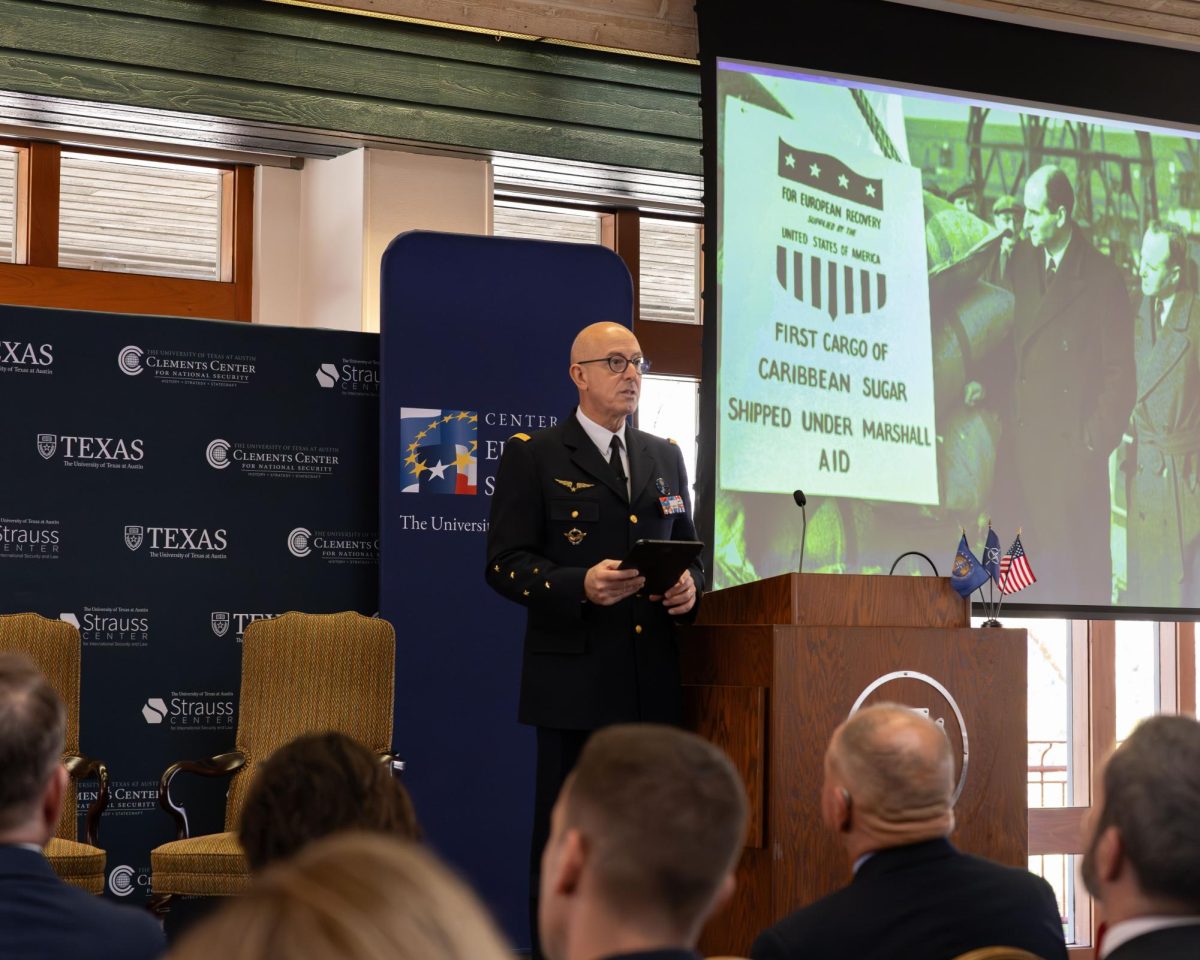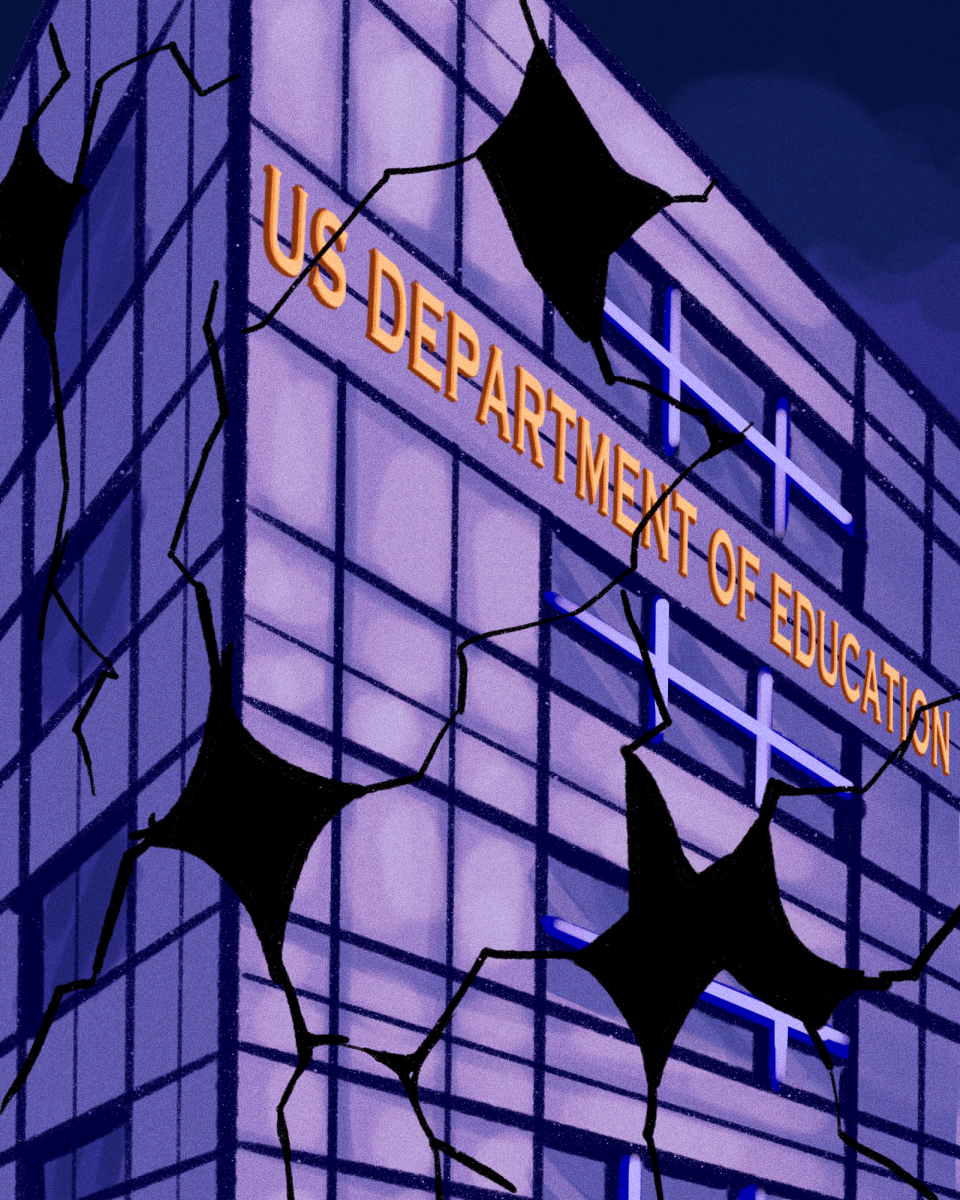Dozens of guests filled the Etter-Harbin Alumni Center on Feb. 6. to attend the first installment of the 2024 NATO Washington Summit Campaign put on by the Transatlantic Security Initiative to examine the future of American security.
In collaboration with the Atlantic Council, the NATO Act and the Canadian Consulate General, the University invited NATO officials, former policymakers and scholars to discuss NATO’s future and challenges ahead of the Washington Summit in July. The conference commenced with opening remarks by Robert Chesney, dean of the School of Law, who introduced General Philippe Lavigne as the event’s first keynote speaker.
“The most noble things that civilization has to offer, … the inherent rights of individuals, … the rule of law, … democracy, … (and) human flourishing in a rules-based international order, in which states cannot simply resort to armed force to move borders, seize resources or conquer one another,” Chesney said at the event. “Nothing embodies this more institutionally than NATO.”
Lavigne, who serves as the Supreme Allied Commander Transformation, noted the history of NATO and its impact on US security in the nearly 75 years since the alliance began — including winning the Cold War and preventing attacks against Americans.
“We work together (on) how to best prepare NATO’s forces to talk today, tonight and tomorrow for the collective defense and the preservation of peace and security,” Lavigne said at the event.
NATO’s military advantages and challenges were at the forefront of Lavigne’s speech. He said issues surrounding artificial intelligence and other emerging technologies and tensions with foreign countries are present concerns. However, the alliance’s defense strategy and technological advances assist them in tackling these issues.
“NATO has the most ambitious and detailed defense plan in a generation,” Lavigne said at the event. “Training exercise Steadfast Defender has just begun the largest NATO exercise, involving 90,000 troops, over 50 ships, 80 fighter planes and 1100s of combat vehicles.”
Kay Bailey Hutchison, former U.S. ambassador to NATO, served as the second keynote speaker. Hutchison discussed the 75th anniversary of NATO and its importance, its partnerships and the alliance’s response to China and Russia.
“NATO is now adapting to become a convener of the like-minded so that we can align together for security, defense, and deterrence when we need to deter hostile or aggressive activity,” Hutchison said at the event. “We are trying to help Ukraine to put the bar down that Russia nor China is going to be able to invade a sovereign nation and not have a consequence.”
Hutchison said the U.S.’s capability to lead NATO and the country’s prominent partners helped strengthen the alliance to assist in times of war.
“We just need to see and stay the course so that we do remain the defense alliance that will be the best for America and the best for our Western allies that want freedom and peace,” Hutchison said at the event.


















